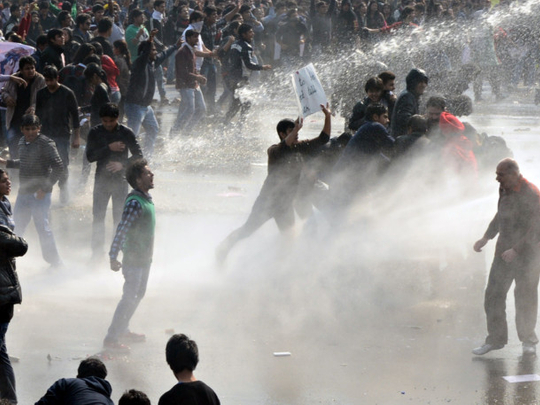
In a country where the lives of ordinary women often have a sad and brief trajectory, the brutal gang rape of a 23-year-old paramedical student in a moving bus in Delhi was horrifying but not unexpected.
It was a tragedy waiting to happen. With poor policing, haphazard governance, increasing corruption and thousands of cases mired in the courts, the law seems firmly on the side of the offender. In a ‘democratic’ country in which one-third of the elected legislators have criminal cases or charges against them, the chances of justice ever being delivered are remote and in rape cases, the number of convictions is negligible.
The girl, and her male friend, a 27-year-old software engineer, had boarded the nearly deserted private bus at night outside a well-known city mall in India’s capital. Unknown to them, the six drunken men (the bus driver, the bus conductors and three of their friends) on board were on a macabre “joyride” (as the police later described it). They had already robbed one passenger of Rs7,000 (Dh467) and forced him off the bus.
Following an altercation with the couple, the men raped the girl and bit and beat her, even violating her with an iron rod. Her friend was similarly beaten with the iron rod, before both of them were thrown out on the road.
During all this, the bus passed through police checkpoints, in a very crowded city that is supposed to be on high alert for terror attacks. Apparently the crime escaped detection because of the dark-tinted glass on the bus windows.
The couple lay, naked and bleeding, on the roadside on a cold winter night with an apathetic crowd of at least 50 people surrounding them, reluctant to get involved, till the police finally arrived. Had the media not immediately taken up the case, perhaps little would have been said or done about yet another gang rape attack that now occurs on a daily basis.
The media coverage (led by many prominent female journalists), angry demonstrations all over the country and outraged speeches from female parliamentarians finally broke the government’s inexplicable silence about gender injustice. But even then, the response from the home minister, Sushil Kumar Shinde read from a prepared text in parliament was disappointingly passionless for a problem that needs urgent attention.
When more than 582 rapes have been reported this year in the capital alone (an increase of almost 100 over last year), one high-profile case will barely make a dent. Besides, there are hundreds still stuck in the courts in Delhi and thousands more all over the country.
Deeper malaise
Meanwhile, Chief Minister of Delhi, Sheila Dikshit, has distanced herself from the shabby behaviour of the police, stating that they take their orders from the central government despite the fact that the same party (Congress) is in power both in the city and the state. And she says she’ll ask for proposed fast-track courts for gender justice, discussed a long time ago, to start functioning immediately.
The police commissioner of Delhi has now promised speedy action and four of the six alleged rapists have already been arrested. But the status of these six men is also raising concerns, pointing to a deeper malaise among the increasing number of marginalised young men in India. These six, for instance, were all employed, albeit in fairly low-paying jobs; three of them were from a slum next to one of the richer colonies of Delhi.
Despite the fact that one of them, a known offender, had eloped with a married woman who later died in mysterious circumstances, no effort was ever made to find out what happened to her.
Probably in any other country, after such events, there would be calls for the commissioner of police and the chief minister to resign. Instead, all we saw were high-profile visits from members of the ruling party to the hospital to “assure” the victim’s family.
The young woman is now on a ventilator, with most of her organs seriously damaged. Unable to communicate verbally, she has shown her fighting spirit by writing a note to her mother saying “I want to live”.
Meanwhile, women all over the country have expressed their empathy with her and highlighted their own fear of walking alone on the streets or taking public transport.
In this highly insecure environment, unless the rape laws are made more stringent, and rapists are seen to be convicted, what happened last week will happen again. And again.
— Guardian News & Media Ltd










